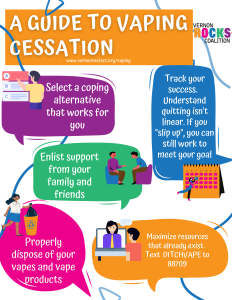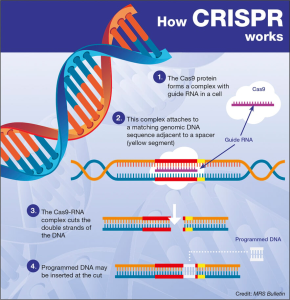
The Boston Marathon is more than just a race; it serves as a powerful testament to the mental resilience and emotional strength of its participants. Every year, thousands of runners line up at the start, driven not only by the challenge of completing 26.2 miles but also by the substantial mental health benefits marathoning offers. This iconic event promotes the psychology of running, providing an opportunity for individuals to confront personal challenges while fostering a sense of community and support. Research suggests that the mental benefits of marathon training can significantly enhance one’s mood and self-esteem, making **Boston Marathon mental health** a pivotal theme of discussion. From the triumph of crossing the finish line to the struggles faced during training, the emotional effects of marathon training resonate deeply, proving that each runner’s journey is as critical as the race itself.
Participating in events like the Boston Marathon can serve as a powerful mechanism for individuals to explore their psychological limits and bolster their emotional well-being. Known for its rich history and dynamic atmosphere, this marathon fosters a collective experience that encourages runners to push past barriers both physically and mentally. The training required for such a long-distance run can provide significant advantages for mental health, catalyzing a transformation in one’s self-image and outlook on life. Whether it’s the camaraderie shared among fellow runners or the cathartic release that comes from achieving personal goals, the Boston Marathon stands as a rallying point for those seeking to improve their mental state through the art of running. Ultimately, this event encapsulates the essence of endurance sports as a vital practice for nurturing one’s mental wellness.
Understanding the Psychology of Running
Running, particularly long-distance events like marathons, offers unique psychological benefits. The journey of training for a marathon cultivates resilience and discipline, which can significantly contribute to an individual’s mental well-being. As runners face the rigorous demands of their training schedules, they often develop a sense of achievement and self-efficacy, enhancing their confidence. The act of pushing through physical barriers creates a mental fortitude that transcends the running experience itself, leading to improved emotional regulation and a clearer mindset in everyday life.
Moreover, the psychology of running is intertwined with the emotional release it provides. During long runs, many athletes experience a state of flow, where they become absorbed in the rhythm of their movements. This meditative state allows for introspection and emotional processing, helping runners to confront and manage life’s stressors. The camaraderie of training groups and race-day cheers adds another layer, fostering social connections that are vital for mental health. In essence, running serves not just as a physical challenge but as a powerful tool for emotional healing.
The Emotional Benefits of Marathon Training
Participating in marathon training offers substantial emotional benefits, as it serves as an outlet for stress and anxiety. Runners often report feeling a profound sense of accomplishment upon completing their training runs, which contributes to enhanced mood and emotional stability. This transformation is often linked to the release of endorphins, commonly referred to as the ‘runner’s high.’ Such feelings of euphoria can lead to a more positive outlook on life, which is essential for individuals dealing with various mental health challenges, such as depression or anxiety.
Additionally, the structure and routine of marathon training provide a sense of purpose and direction. Setting specific goals, whether they are related to distance, speed, or consistency, gives individuals something to strive for, creating motivation and reducing feelings of aimlessness. As runners commit to their training, they learn to embrace discipline and perseverance, skills that can be crucial in navigating life’s ups and downs. This emotional resilience nurtured through marathon training frequently translates into other areas of life, promoting overall mental health.
Running for Mental Health: The Boston Marathon Experience
The Boston Marathon, a historic and prestigious event, encapsulates not only athleticism but also a profound connection to mental health. Many participants enter the race with personal stories that reflect their struggles and triumphs, showcasing the transformative nature of running. The atmosphere of the marathon—filled with cheers, support, and shared experiences—creates a unique space for emotional expression. Completing such a monumental challenge works wonders for mental health, as runners experience a sense of fulfillment and achievement that is hard to replicate in other areas of life.
Moreover, the psychological support from the Boston Marathon medical team highlights the importance of mental health awareness in long-distance running. With professional help on-site, fitness and emotional recovery go hand in hand, showcasing a holistic approach to athlete care. The presence of mental health professionals during the event signifies that while running can be a solitary journey, it is not undertaken alone; there exists a support network ready to assist. This focus on the mental aspects of running aligns with a broader recognition of the role physical activities play in promoting mental health and well-being.
Why People Choose to Run a Marathon
The motivations behind why individuals choose to embark on the journey of marathon running are diverse and deeply personal. For many, crossing the finish line symbolizes more than just completing a race; it embodies overcoming personal struggles, be it health issues, loss, or self-doubt. This deeply personal commitment resonates with the psychological aspect of running, where each runner’s journey reflects their unique life experiences and battles. As a result, marathons become a platform for personal storytelling, community support, and healing.
Additionally, for others, participation in the Boston Marathon represents a chance to challenge oneself physically and mentally, while also contributing to broader causes, such as charity fundraising. This altruism can be particularly rewarding, as runners often feel a heightened sense of purpose through their actions, which further motivates their training and participation. The marathon thus evolves into a shared experience of hope and resilience, reinforcing the emotional benefits of running as participants channel their collective energy towards achieving goals larger than themselves.
The Impact of Running on Self-Concept
Running, especially with the lofty goal of completing a marathon, has a significant impact on an individual’s self-concept. As runners prepare for the race, they engage in a journey of self-discovery, learning about their physical and mental capabilities in ways they might never have imagined. This newfound awareness often leads to a re-evaluation of self-worth, allowing participants to see themselves as capable and strong. Moreover, achieving a personal milestone can foster a more positive self-image, encouraging individuals to pursue other goals in their lives with the same determination.
The Boston Marathon serves as a pinnacle for this transformation, as achieving such a feat can redefine how participants view themselves. Being able to say ‘I am a marathon finisher’ shifts one’s identity, instilling a powerful sense of pride and accomplishment. This change in self-perception not only enhances confidence but also paves the way for further personal growth, as runners apply the mental strength they cultivated during their training to new challenges beyond the track.
Navigating Mental Challenges During Training
Training for a marathon is not solely a physical undertaking; it also comes with psychological challenges that runners must navigate. Mental obstacles, such as doubt, fear of failure, or burnout, can surface during the grueling training process. Many participants experience these hurdles, often feeling overwhelmed by the commitment required and the potential for injury or setbacks. Understanding how to handle these pressures becomes crucial for maintaining motivation and mental health throughout the rigorous training regimen.
One effective strategy for overcoming these mental struggles is the implementation of mindfulness practices. Many runners incorporate techniques such as visualization and positive self-talk into their training, helping them stay focused and calm when the going gets tough. By fostering a strong mental game, runners can create a more enjoyable and successful marathon training experience. This ability to navigate internal challenges not only prepares them for race day but also equips them with skills that can enhance their overall mental resilience in everyday life.
Building Resilience through Marathon Preparation
The preparation for a marathon requires commitment, dedication, and resilience. Many runners find that as they progress through their training, they not only face physical challenges but also mental ones. This journey of perseverance becomes a profound learning experience, teaching them about pushing beyond their limits and overcoming adversity. Training for the Boston Marathon, in particular, necessitates grappling with various obstacles, whether weather-related issues or physical discomfort, which ultimately builds mental strength and adaptive coping strategies.
As runners cultivate resilience, they often find that these skills translate into various aspects of their lives, allowing them to better manage stress and face challenges head-on. The marathon becomes more than just a race; it becomes a metaphor for life’s hurdles, reflecting the idea that with effort and determination, individuals can achieve their goals despite the odds. This newfound resilience empowers runners long after crossing the finish line, fostering a greater sense of control and adaptability in their personal and professional lives.
Community and Connection in the Marathon World
The process of preparing for and participating in a marathon fosters a unique sense of community and connection among runners. Whether training in groups or sharing experiences with fellow participants, individuals bond over their shared challenges and triumphs. This collective support system is vital for mental health, providing encouragement and camaraderie throughout the often-lonely training process. Community events, informational meet-ups, and online forums strengthen these connections, creating a network that extends beyond race day.
At the Boston Marathon, this sense of community is palpable, as thousands of runners unite with spectators and supporters, all sharing in the emotional highs and lows of the event. The encouragement from the crowd acts as a powerful motivator, bolstering the spirits of runners during their toughest miles. Furthermore, this vibrant atmosphere fosters social connections that can last long after the marathon is over, highlighting how running serves not only as individualistic pursuit but also as a collective journey towards shared goals and aspirations.
Celebrating Achievement: The Aftermath of the Marathon
Completing a marathon is a monumental achievement that deserves celebration, both personally and publicly. After crossing the finish line, many runners report feelings of elation, pride, and even catharsis, as they finally attain their goal after months of hard work. This sense of accomplishment can lead to a profound sense of satisfaction and can serve as a powerful motivator for future challenges. Participants often feel a renewed vigor for life, igniting aspirations for additional races, fitness goals, or personal endeavors.
Moreover, the post-marathon experience allows individuals to reflect on their journey and the emotional and mental growth they’ve achieved along the way. For many, it signifies a moment of personal transformation, where the struggles faced during training translate into a broader perspective on life’s challenges. This realization can have lasting effects, reinforcing an individual’s sense of purpose and direction in life, while highlighting the importance of the mind-body connection in ongoing mental wellness.
Frequently Asked Questions
How does Boston Marathon participation impact mental health?
Participating in the Boston Marathon can significantly enhance mental health by providing runners with a tangible goal to strive for. The process of training, completing a marathon, and achieving one’s personal best can boost self-esteem, create a sense of community, and foster resilience—benefits often associated with the psychology of running.
What are the mental benefits of marathon training?
Marathon training offers numerous mental health benefits, including reduced symptoms of anxiety and depression, improved mood, and enhanced mindfulness. Runners often report a sense of accomplishment and purpose, which aligns with the idea that running for mental health can promote emotional stability and a positive self-image.
What role does the psychology of running play in preparing for the Boston Marathon?
The psychology of running is crucial for Boston Marathon participants as it influences their motivation and mental preparation. Understanding one’s personal reasons for running can enhance focus, perseverance, and overall performance, making it a key component of successful marathon training.
How can running for mental health help individuals cope with stress?
Running for mental health is an effective strategy for managing stress, as physical activity releases endorphins, which improve mood and reduce feelings of anxiety. Many Boston Marathon runners find that the emotional effects of marathon training provide an outlet for dealing with everyday pressures and challenges.
What emotional effects can runners expect after completing the Boston Marathon?
Runners often experience a complex array of emotions after completing the Boston Marathon, including joy, relief, and even a sense of loss. This reflects the culmination of their efforts over the training period, and the transformative experience often leads to increased self-worth and emotional fulfillment.
Why is the Boston Marathon considered a meaningful experience for mental health?
The Boston Marathon is deemed meaningful for mental health because of its communal spirit and the personal journeys that each runner undertakes. The event symbolizes achievement and resilience, while also offering participants the opportunity to connect their emotional experiences with their physical capabilities.
Can marathon participation lead to long-term mental health benefits?
Yes, marathon participation can lead to long-term mental health benefits. Regular running, especially in a goal-oriented environment like the Boston Marathon, can foster ongoing habits of resilience, community engagement, and a healthier self-concept—key components in maintaining overall mental well-being.
How can one use marathon training as a tool for personal growth?
Marathon training can serve as a powerful tool for personal growth by challenging individuals to set and achieve goals. Through the challenges faced during training and the marathon itself, runners often develop greater self-discipline, improved confidence, and a deeper understanding of their capabilities, which are crucial aspects of mental health.
What psychological support is available for Boston Marathon runners?
Psychological support for Boston Marathon runners includes services from the Boston Marathon medical team and mental health professionals who provide evaluations and support. This helps runners manage their emotional and psychological needs during and after the event, contributing to their overall mental health during the marathon experience.
How does training for the Boston Marathon foster a sense of community among runners?
Training for the Boston Marathon fosters a strong sense of community among runners through shared experiences, group runs, and mutual support. This community aspect enhances mental health by promoting social connections, reducing feelings of isolation, and providing a platform for shared motivation and encouragement.
| Key Aspects | Details |
|---|---|
| Reason for Running | Personal motivations vary greatly; some run in memory of loved ones or for charity. |
| Impact on Mental Health | Running serves as a healthy outlet for affirmations and personal growth. |
| Common Challenges | Runners may face severe physical and mental challenges, including cramps, disorientation, and emotional distress. |
| Medical Support | The Boston Marathon has a dedicated team of mental health professionals to support runners in distress. |
| Transformation Moment | Finishing the marathon is a significant achievement that symbolizes hope and fulfillment, leading to a range of emotions. |
| Diversity of Participants | Participants range in age and experience, each with unique goals and adaptations to the challenge. |
| Emotional Outcomes | A sense of achievement can significantly uplift one’s self-concept and community perception. |
Summary
Boston Marathon mental health is profoundly affected by personal motivations and the incredible journey many undertake to complete the race. For many participants, the marathon is not just a physical challenge; it is a transformative experience that can foster emotional resilience, foster community connections, and promote personal growth. The mental health support provided during the marathon highlights the awareness of both physical and psychological challenges, reinforcing the importance of mental well-being in endurance sports.



